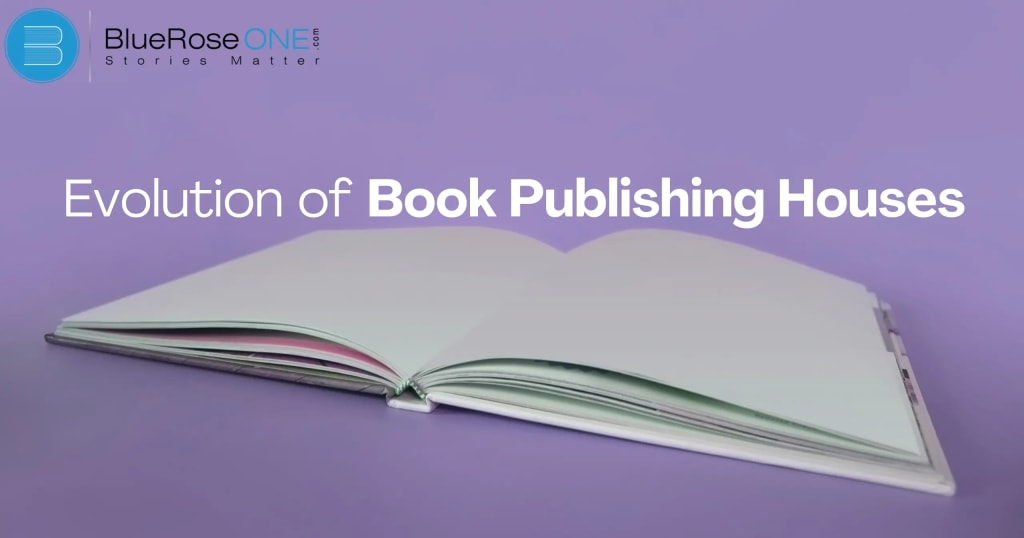The Evolution of Book Publishing Houses
Evolution of Book Publishing Houses

Over the years, publishing firms have played a crucial role in the broad landscape of literature. A paradigm shift in the publishing industry has occurred, with independent publishers emerging and established publishing giants losing their hegemony due to shifting consumer preferences and technological improvements.
Introduction to Book Publishing Houses
As a medium between writers and readers, book publishing houses curate, produce, and disseminate literary works to a broad audience. These houses have historically had a great deal of influence over the content that was released onto the market.
Traditional Publishing: The Legacy of Big Houses
Historical Background
The history of book publishing enterprises is deeply ingrained in the landscape. For centuries, the literary world has been formed by traditional publishing, which is best represented by the history of large houses. Reputable brands like Simon & Schuster and HarperCollins have been mainstays of the publishing industry since the printing press was invented.
These titans have selected and published literary works that have endured as touchstones in culture. Their lasting impact has created the groundwork for the development of book publishing, enabling independent presses to flourish and carve out distinct markets in a constantly shifting and dynamic industry.
Role of Traditional Publishing Houses
Traditional publishing houses are pillars of the literary world, firmly rooted in the ever-changing literary scene with their rich history and unmatched knowledge. For a considerable amount of time, these publishing houses have served as the guardians of literary achievement, carefully selecting and fine-tuning their editorials to create a literary environment.
Traditional publishing houses are the cornerstone of literary culture, providing authors with the visibility and legitimacy that come with their prestigious labels while also nurturing up-and-coming writers and supporting established voices.
These ancient establishments continue to play an indispensable part in the industry’s past, present, and definitely future—even in the face of the emergence of independent publishing channels.
Pros and Cons
Within the dynamic realm of book publishing houses, the historical impact of established titans bears witness to the industry’s extensive past. Unquestionably, traditional publishing has advantages over other forms of publication, including superior distribution networks, strong marketing support, and the prestige of being linked to well-known imprints.
For aspiring writers, navigating these enormous establishments can be difficult, with lengthy wait times and little creative freedom. With self-publishing offering more liberty and larger income, authors discover liberation as the sector moves towards independence.
However, independent publishing lacks the traditional houses extensive resources and well-established reputations. In the ever-changing world of book publishing, authors looking for the ideal fit for their literary journeys must carefully consider the advantages and disadvantages of traditional versus independent publishing channels.
The Rise of Independent Publishing
Unlike the conventional approach, independent publishing has become more popular, giving writers the ability to steer their own literary careers.
Definition and Characteristics
Within the always-changing publishing landscape, book publishing houses are essential to the shaping of the literary world. These houses have historically been associated with well-established titans who had enormous control over the content that made it into readers’ hands.
But a new paradigm has arisen as independent publishing has grown. Independent publishing businesses are known for their inventiveness, adaptability, and commitment to specialized markets.
They reject the standard gatekeeping paradigm, giving a forum to a range of voices and non-traditional stories. This change signals the beginning of a creatively vibrant period that gives writers never-before-seen chances to tell their stories to a global audience.
Advantages and Challenges
Within the ever-changing publishing landscape, the emergence of independent publishing houses represents a dramatic departure from conventional approaches. There are many benefits that these smaller, more nimble businesses have over their larger counterparts.
Authors that work with independent publishers frequently get more creative freedom, quicker release dates, and larger compensation. Furthermore, they cultivate a feeling of camaraderie and customised assistance for authors, promoting a range of perspectives and specialised fields.
Nevertheless, despite these benefits, independent publishers still have particular difficulties. Having fewer resources, fewer distribution channels, and less market exposure can make it difficult to reach more people. Notwithstanding these challenges, independent publishing’s appeal is only increasing, signalling a shift in the way the literary world views itself....Continue reading





Comments
There are no comments for this story
Be the first to respond and start the conversation.